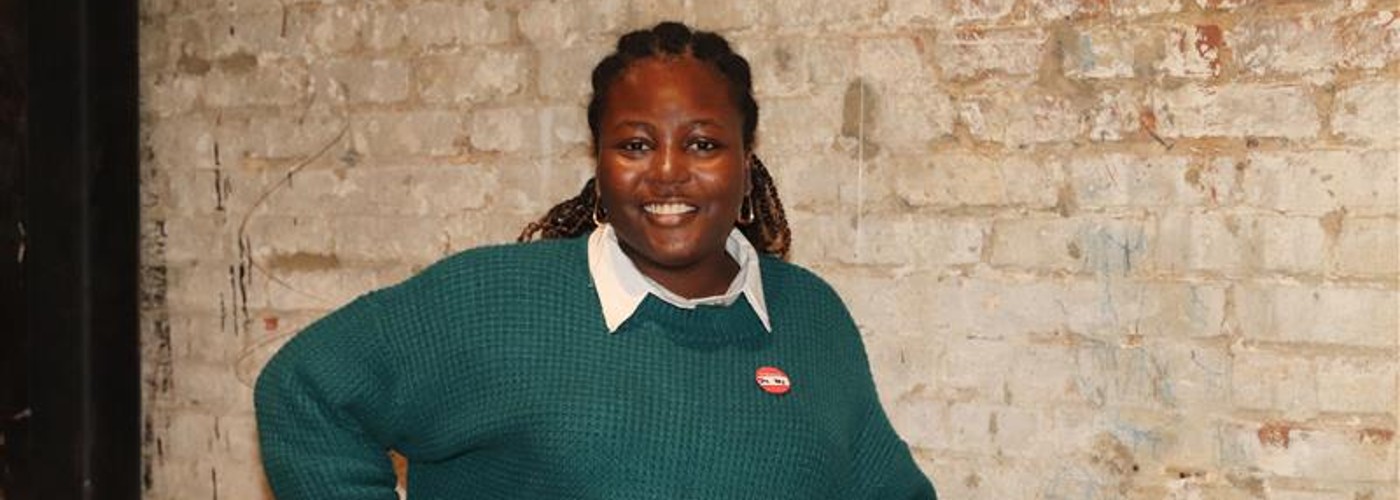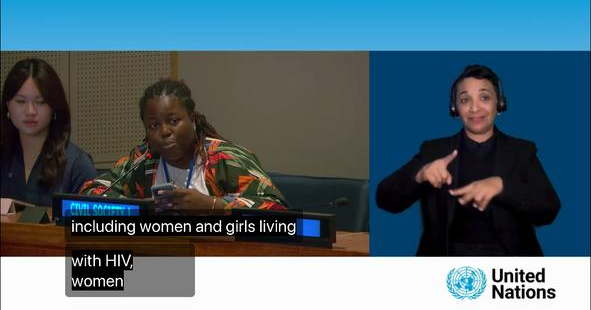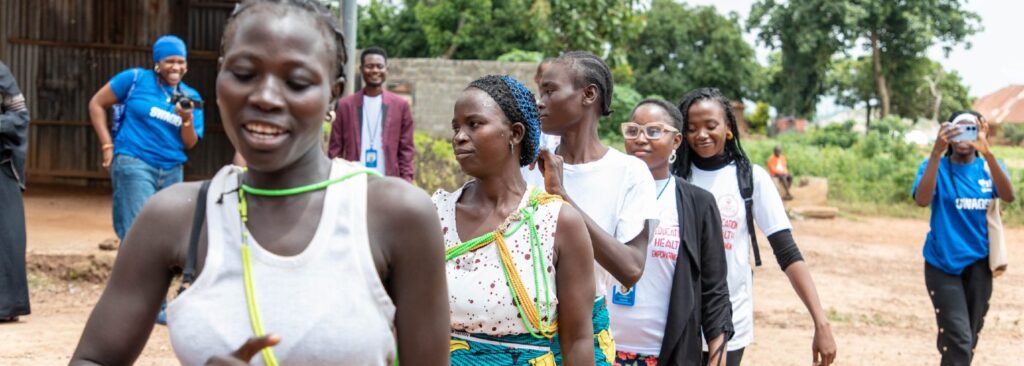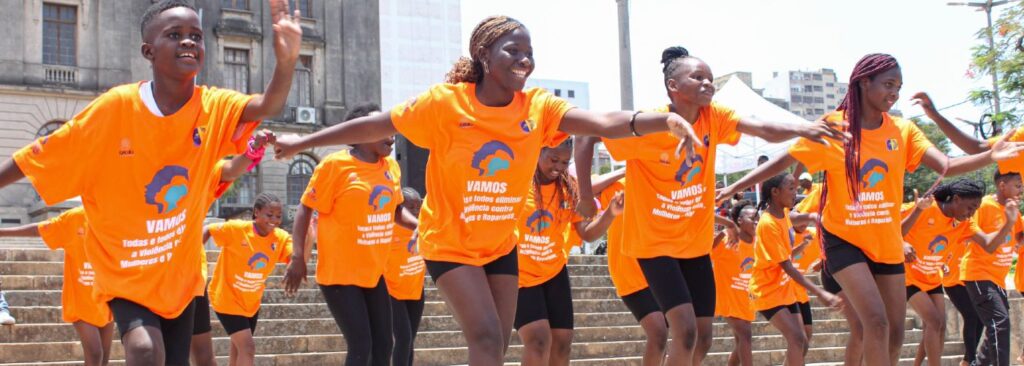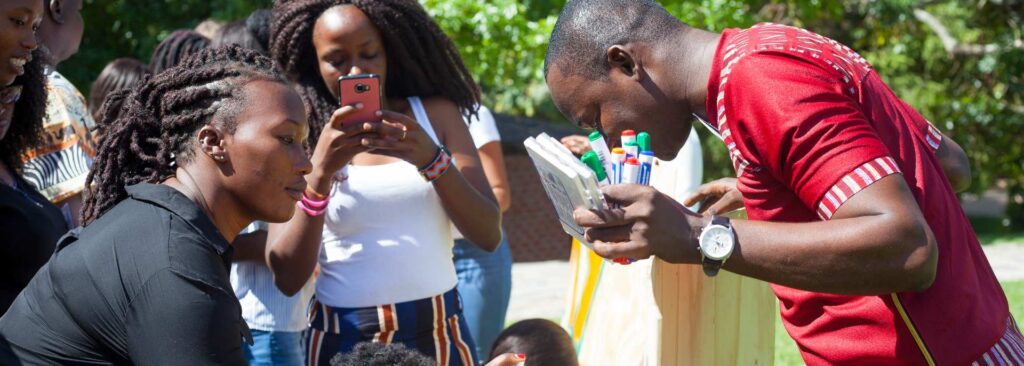Advocate and researcher Funom Yakubu (28) leads the We Lead program in Nigeria. As the Community of Action Facilitator, she works with young feminists throughout Nigeria and connects them to the global program. Funom is one of the 30 Feminists Under 30, a campaign that celebrates the successes of the We Lead program.
Raised without traditional roles
In her childhood home, Funom’s family did not adhere to traditional gender roles. “I like to pride myself on the fact that I was raised in a completely different home,” she said with a smile. Her parents took near equal parts in household chores, with her father taking up roles that were largely dimed “feminine”. “My father is a feminist. Whether he wants to call himself that or not.”
The real culture shock came when Funom entered boarding school. “Suddenly I was being told girls don’t do this, girls don’t do that,” she recalled. “And I couldn’t understand why.” Advancing in science was seen as exclusive for boys, whereas girls were encouraged to pursue art subjects. “When I graduated with my bachelor’s degree, people started to say, ‘Where is the boyfriend? You should start settling down.’”
Luckily, Funom’s father continued to champion her growth. “Funny story, one of my friends said: ‘Since he has a master’s degree, he cannot marry a woman with a PhD.’ My father was shocked and simple muttered, “then your wife is not in my house”. He could not understand why simply because we were girls, we couldn’t achieve everything we wanted to.
Solidarity in practice
Today, Funom coordinates work across multiple organizations as part of the We Lead Community of Action (CoA) in Nigeria. She is especially proud of how the initiative has fostered unexpected partnerships. “Disability rights groups, organizations supporting persons living with HIV, and LGBTIQ+ focused groups – these communities never used to work together,” she said. “But now they collaborate, support each other, and even co-host events.”
Funom recalled a recent event for displaced persons, where a sign language interpreter was included without prompt. “That’s the kind of solidarity we’ve built,” she said.
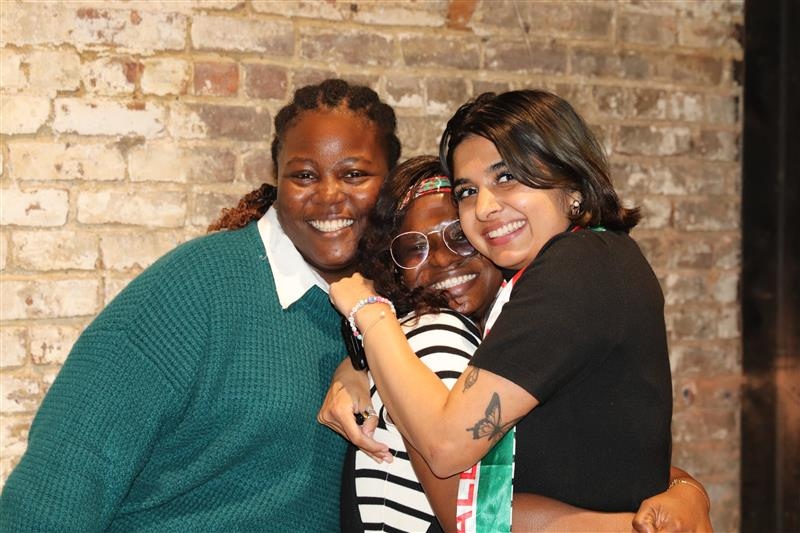
A global network of friends
Through the We Lead program, Funom has found like-minded people across the globe. “I’m not the only young person doing this work,” she said. “I have a global network of friends, young leaders in Uganda, Kenya, and beyond, who are going through the same struggles, fighting the same battles.”
The community offers her a unique support system. “When I feel tired or frustrated, I know I can text someone who gets it,” she said. “That gives me strength.”
Hope in numbers
Last month, Funom attended the UN Commission on the Status of Women on behalf of We Lead. She spoke passionately about strengthening feminist organizing when she addressed the Member States. “Young women and girls are not waiting for permission to lead. They are already leading. The question is: will the world listen?”
In the end, it’s this collective energy that gives her hope. “The truth is, this space can be exhausting,” Funom admitted. “But knowing I’m not alone and that others are shouting with me, fighting with me, that’s what keeps me going.”

